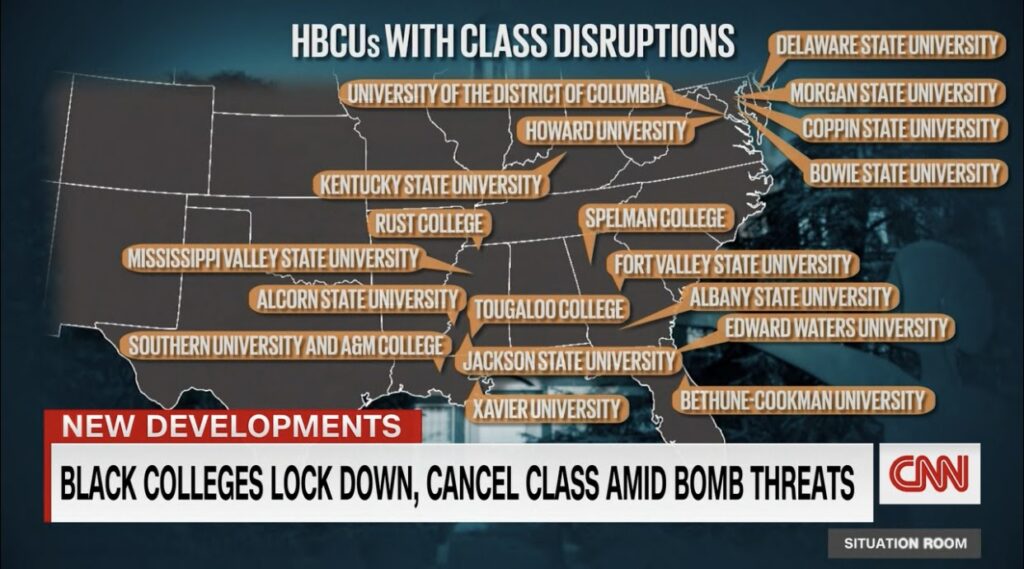
14 historically Black colleges and universities (HBCUs) across the nation began their Black History Month by waking up to violent bomb threats against their campuses.
On Feb. 1, schools received phone calls detailing the elaborate threats toward their campuses and alerted their faculty, staff and students through various mediums ranging from emails, text messages and campus safety apps. Quincy Hodges, a mass communications professor at Xavier University of Louisiana (XULA), feels that Xavier handled the threats well and kept the community as conscious of the threats as possible through their text messaging system.
“XULA, as they have in the past [the school received another bomb threat the month prior], followed the proper protocols in place and was in contact with law enforcement from the beginning of the threat,” Hodges said.
“As a teacher at XULA, I do feel safe and confident that the administration places safety above all else for all faculty, staff, and students. The administration was fast-acting, very communicative and made sure to get the authorities involved to fully assess the situation,” he continued.
On the day the threats were received, schools issued shelter-in-place orders and halted instruction for the day to ensure their safety, even after they announced “all-clear” messaging. Rust College in Holly Springs, Mississippi, was one university that canceled courses and went into lockdown once notified about the threats. Anthony Harris Jr., a senior business major at Rust College, expressed how he believes that it is no coincidence for these attacks to have occurred on the first day of Black History Month, suggesting racist intent.
“I honestly believe it was a mockery to our people and our community,” Harris said.
Similar to Rustin, Kennedy Harrison, a junior political science major at Jackson State University, has strong opinions on the intent of the attack.
“Good publicity, donations, corporation deals, NFL coaches and organizations bringing opportunities have put a target on the back of HBCUs. Our white counterparts have had multiple outcries showing evident frustration because of the success of HBCUs and Black culture,” she explained.
On Feb. 3, the FBI announced that they had identified six juveniles responsible for the threats made against the campuses and that they would be investigating the threats as hate crimes. None of the juveniles have been arrested, nor their age or race disclosed. The investigation is ongoing.
While the identification of the six juveniles brought solace to the HBCU community, it is still disheartening for some, such as Morgan State University sophomore computer science major Mwansa Chiyombwe, to see these attacks take place in the present day.
“As a university, a lot of us at Morgan State felt disappointed that even in 2022 we are dealing with such racial attacks,” Chiyombwe said. “The sad truth, I feel, is that in this world, we as Black people still don’t receive the respect that we deserve even after all that our people have been put through, and instances like this are just another reminder of that,” he continued.
For now, campuses, such as Howard University, who received threats on both Jan. 31 and Feb. 1, are taking steps to heal their campus and ease the hearts of their students, faculty and alumni one day at a time. On Feb. 4, the school issued a “Mental Health Day,” suspending instruction until Monday, Feb. 6.
Copy edited by: N’dia Webb

